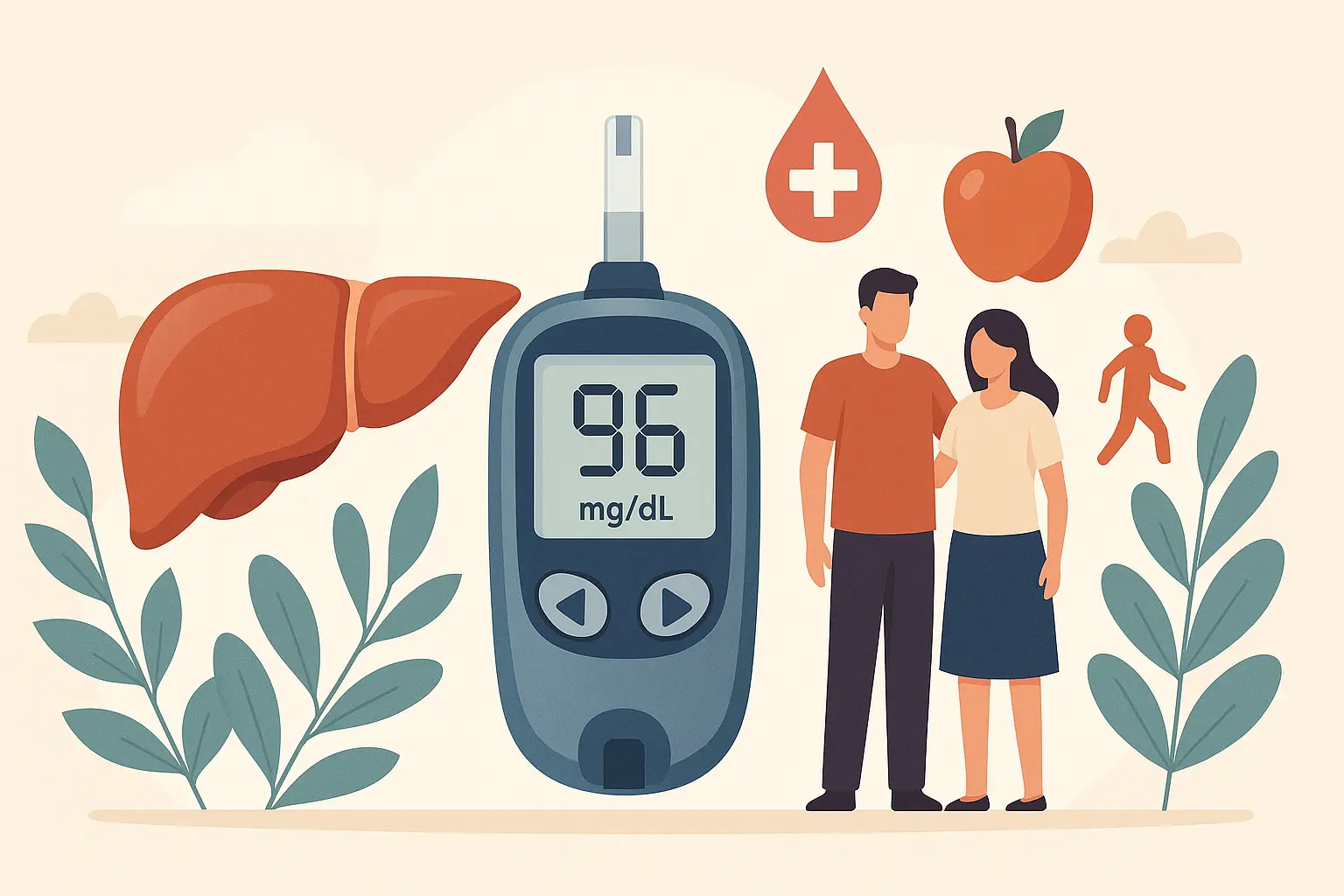
Admin November 07, 2025
How Diabetes Affects Your Liver: What You Can Do to Protect It
The liver plays a crucial role in managing blood sugar levels, storing glucose, and metabolizing fats. But when diabetes enters the picture, it can significantly strain this vital organ. Understanding how diabetes and liver health are connected is key to preventing long-term complications and protecting your overall well-being.
As we mark World Diabetes Day 2025, it’s essential to shed light on how diabetes impacts organs beyond the pancreas-especially the liver, which silently endures the burden of fluctuating blood sugar and insulin resistance.
Why World Diabetes Day 2025 Focuses on “Diabetes Across Life Stages”
Every year on November 14, World Diabetes Day-led by the World Health Organization (WHO) and the International Diabetes Federation (IDF)-highlights a vital aspect of diabetes care.
The theme for World Diabetes Day 2025, “Diabetes Across Life Stages,” emphasizes that diabetes is not confined to one age group. It affects children, adults, and seniors alike, with each stage of life presenting unique challenges and risks-including those related to liver health.
How Diabetes Impacts Liver Function
The Role of the Liver in Blood Sugar Regulation
The liver acts as your body’s energy storage system. It stores glucose as glycogen and releases it when blood sugar drops. In diabetes, insulin resistance disrupts this process, leading to excess glucose production and increased fat accumulation.
Non-Alcoholic Fatty Liver Disease (NAFLD) and Diabetes
NAFLD affects nearly 70% of people with type 2 diabetes. This condition occurs when fat builds up in liver cells, even in those who don’t consume alcohol. Over time, NAFLD can progress to non-alcoholic steatohepatitis (NASH), cirrhosis, or even liver failure.
Insulin Resistance and Fat Buildup in the Liver
When the body becomes resistant to insulin, it struggles to process fats efficiently. The excess fat is then stored in the liver, impairing its function and promoting inflammation.
Diabetes-Related Liver Inflammation and Fibrosis
Chronic high blood sugar triggers inflammation that can lead to fibrosis (scarring) in the liver. If left untreated, this can evolve into irreversible liver damage.
Early Signs Your Liver Might Be Affected by Diabetes
Common Symptoms to Watch For
- Persistent fatigue
- Abdominal discomfort or bloating
- Yellowing of the skin or eyes (jaundice)
- Unexplained weight loss
- Dark urine or pale stools
Diagnostic Tests for Diabetic Liver Disease
If you have diabetes, your doctor may recommend:
- Liver Function Tests (LFTs)
- Ultrasound or FibroScan
- HbA1c and fasting glucose tests
- Lipid profile and insulin resistance markers
Steps You Can Take to Protect Your Liver
1. Maintain Optimal Blood Sugar Levels
Consistent glucose management reduces liver stress. Monitor your sugar levels, take prescribed medications, and follow your endocrinologist’s advice.
2. Eat a Liver-Friendly Diet
Consume high-fiber foods like oats, green vegetables, and whole grains. Avoid refined sugars and saturated fats.
3. Limit Alcohol and Processed Foods
Alcohol can accelerate liver damage, especially in diabetics. Avoid processed foods high in sodium and trans fats.
4. Exercise Regularly and Maintain a Healthy Weight
Physical activity helps burn liver fat and improves insulin sensitivity.
5. Get Regular Liver Function Tests
Early detection is key. Consult a Liver Specialist in Gurgaon for periodic liver health evaluations.
Preventive Care: Lifestyle Habits for a Healthier Liver
Hydration, Sleep, and Stress Management
Drink plenty of water, sleep 7–8 hours a night, and practice mindfulness to support liver function.
Vaccinations and Supplements for Liver Support
Vaccines for hepatitis A and B can prevent infections that worsen liver conditions. Omega-3s and vitamin E may also support liver health (consult your doctor before use).
Frequently Asked Questions (FAQs)
1. Can diabetes cause permanent liver damage?
Yes, long-term uncontrolled diabetes can lead to irreversible liver scarring (cirrhosis).
2. How is fatty liver disease related to type 2 diabetes?
Insulin resistance in diabetes causes fat accumulation in the liver, leading to fatty liver disease.
3. What foods are best for diabetic liver health?
Leafy greens, whole grains, nuts, olive oil, and lean proteins.
4. Can liver problems make diabetes worse?
Yes, a damaged liver disrupts glucose metabolism, worsening diabetes control.
5. When should a diabetic see a liver specialist?
If you experience fatigue, abdominal pain, or abnormal LFT results.
6. What are the latest treatments for fatty liver in diabetics?
Lifestyle modification, weight management, and emerging medications targeting insulin sensitivity.
Conclusion: Take Charge of Your Diabetes and Liver Health Today
Your liver silently supports you every day - and with diabetes, it needs extra care. By maintaining healthy blood sugar levels, eating right, and consulting experts like Dr. Sukrit Singh Sethi at Gutwell Clinic, Sector 27, Gurgaon, you can protect both your liver and your life.
On World Diabetes Day 2025, let’s pledge to focus on comprehensive health - not just glucose numbers.
Disclaimer
This article is for awareness purposes only and should not be considered medical advice; please consult your doctor for personalized guidance.
